The project TRUST (ERASMUS + K-A220-ADU Project TRUST)
T - Trauma
R - Refugees
U - Ukraine
S - Solidarity
T - Therapy
è dedicato al supportare la salute mentale degli individui coinvolti nella guerra in Ucraina attraverso l’arte terapia, aumentare la consapevolezza sulle conseguenze del conflitto, dei benefici terapeutici dell’arte terapia, organizzare eventi per destigmatizzare il tema della salute mentale e condividere conoscenze sull’arte terapia per dimostrarne le capacità curative. Questo verrà promosso attraverso attività educazionali sull’arte terapia, lo sviluppo di risorse digitali e l’evoluzione di competenze in educatori adulti.
Ci aspettiamo che il nostro progetto abbia un impatto significativo sui cittadini europei attraverso la promozione dei valori di dell’Unione Europea di pace, solidarietà, inclusività e diversità culturale.
Gli obiettivi principali del progetto includono promuovere la consapevolezza dell’impatto umano che ha avuto il conflitto, fornire competenze nell’arte terapia e organizzare eventi per destigmatizzare il tema della salute mentale, promuovendo al contempo i valori dell’UE. Si vuole promuovere l’arte terapia come uno strumento di inclusione, alimentando connessioni tra i centri per la salute mentale e gli artisti, per dimostrarne la propria efficacia nel processo di cura.
Verranno offerte attività educative per personale che lavora nell’ambito della salute mentale, artisi, ed individui affetti da problematiche di salute mentale connesse ai contesti di guerra.
Verranno sviluppate delle risorse digitali come un sito web, un ebook, dei video, un MOOC e un documentario.
Uno degli obiettivi generali del progetto è quello di contribuire al benessere psicologico e fisico delle vittime della guerra in Ucraina, aiutandole nella gestione di stress e traumi connessi al conflitto.
Alla stesura di questo progetto a Maggio 2023, circa 4 milioni di rifugiati ucraini sono stati accolti all’interno dell’Unione Europea, una popolazione che vogliamo raggiungere attraverso la forza trasformativa dell’arte terapia, così com’è stata dimostrata dalla letteratura scientifica
The initiative will be promoted, in collaboration with the Mental Health Departments of the ASLs in Rome with which the Di Liegro Foundation has established agreements, within the relevant public health services to identify, in a participatory manner with psychiatrists and care workers, those individuals with the greatest needs, a therapeutic path significant in duration and outcomes, and, as a priority criterion, those already involved in workshops organized by the Di Liegro Foundation. The project includes:
The project will be accompanied by careful coordination and supervision of the involved figures, with constant monitoring of progress and the results achieved.
The Foundation aims to propose various activities through this project to promote mental health and well-being and to foster the social inclusion of people with mental health issues by enhancing local services. The Municipal Plan for Zone VIII 2018-2020 highlighted significant challenges regarding municipal interventions, specifically the lack of systematic collaboration and an integrated working methodology with the Mental Health Center (CSM). The Municipality identifies among the fundamental project trajectories a systematic collaboration with the Department of Mental Health (DSM), particularly with the CSM, and the strengthening of relationships with Job Orientation Centers (COL) and the third sector. This project, therefore, fits into a context that requires the optimization of the organization and coordination of health and non-health services dedicated to mental health care. To define innovative strategies, the goal is to establish a sort of "mental health pact" among multiple local stakeholders: healthcare and social professionals, public and private entities, local authorities, forms of active citizenship, and other third sector organizations, to enhance human, material, and territorial resources. Greater collaboration among these stakeholders, along with dedicated training and information for them, would facilitate people's access to available services and the creation of inclusive social networks. Socialization and deep social inclusion can and must come to life through the localization of services, ensuring that individuals have guaranteed access to their community of belonging before, during, and after their experience with mental health issues, in a resource-rich territory ready to welcome and include them. For this reason, it is necessary to leverage already available resources, making them known, but also to raise awareness in the community towards being informed and non-judgmental.
L'obiettivo finale è quello di creare un’unione tra i percorsi clinici, indirizzati alle persone con disagio psichico, e i percorsi non clinici, ovvero di attivare una rete territoriale che possa guidare l'individuo verso l'inclusione e il benessere sociale e non ghettizzarlo esclusivamente nei servizi clinici. La realizzazione della piattaforma ha invece come obiettivo quello di rendere più agevole per la cittadinanza il trovare punti di riferimento e servizi utili sul territorio e rendere noto l'iter più adeguato da intraprendere in base all'esigenza.
Le azioni previste dal progetto “YESIP - Youth Empowerment for Social Inclusion and Prosociality” si rivolgono agli studenti e alla comunità scolastica, insegnanti, genitori e youth workers, attraverso: opportunità di discussione, formazione ed informazione, quali dibattiti con esperti, influencer e personaggi noti (impegnati attraverso le loro attività nel raccontare le dinamiche e le sfide del periodo adolescenziale e di contrasto alla discriminazione sociale e violenza); momenti psicoeducativi e di empowerment (laboratori esperienziali e workshop) per promuovere i fattori protettivi alla base delle competenze prosociali. Integrando diverse metodologie ci si propone di sensibilizzare gli studenti e rafforzare la loro consapevolezza sulle tematiche oggetto di discriminazione e sugli strumenti emotivi e sociali che possono prevenire comportamenti devianti, dinamiche di vittimizzazione e esclusione.
Il progetto ha previsto 4 eventi pomeridiani per i giovani e 4 per gli adulti, volti all’apertura di un dialogo e di supporto alla consapevolezza. Ogni evento, adeguatamente presentato nelle scuole e pubblicizzato tramite la rete di contatti della Fondazione e dei partner, tratta una tematica diversa, con l’obiettivo di lanciare un messaggio contro la discriminazione e la violenza fra i ragazzi soprattutto in questo clima storico difficile per la salute mentale dei giovani, costituendo un momento di prevenzione del disagio sociale e psicofisico, di recupero e socializzazione, di sviluppo e di inclusione collettiva.
In the context of restraint prevention, the SPDC hospital department of San Filippo Neri of Asl Roma 1, in collaboration with the International Foundation Don Luigi Di Liegro, proposes a pilot project aimed at building a network pathway against isolation that can help hospitalized people better cope with an inherently complex situation.
The project includes the activation of a process that is not exclusively medical but also social and supports relational skills and personal effectiveness, respecting the condition of fragility of the participants and enhancing their resources. Through art-mediated communication (music, painting, manual work objects, writing and reading, body movement, etc.), exchange becomes possible, and the professional acts as a mediator of interpersonal communication in the group.
The content and form of the workshops were designed and chosen to promote socialization among participants, listening, and mutual recognition, respecting each individual's space and the free choice not to participate or simply to observe, depending on the participants' feelings. The aim is to foster an atmosphere of harmony and mutual acceptance as much as possible.
Each meeting is complete in itself, considering that the composition of the group is continuously changing. Users are given the freedom to participate or not, as they choose, each time.
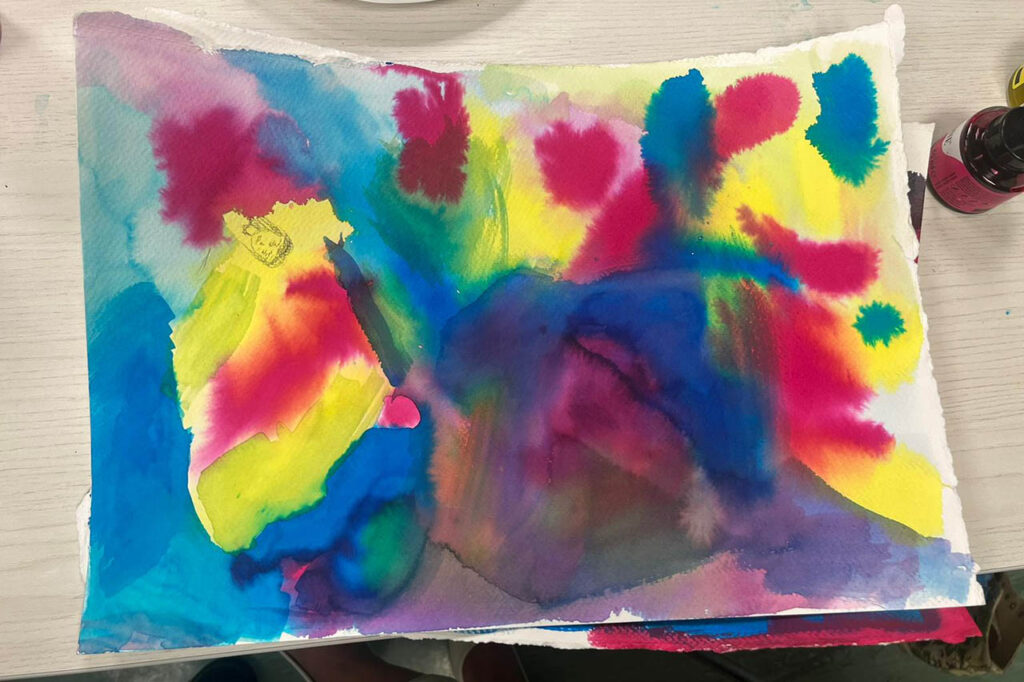
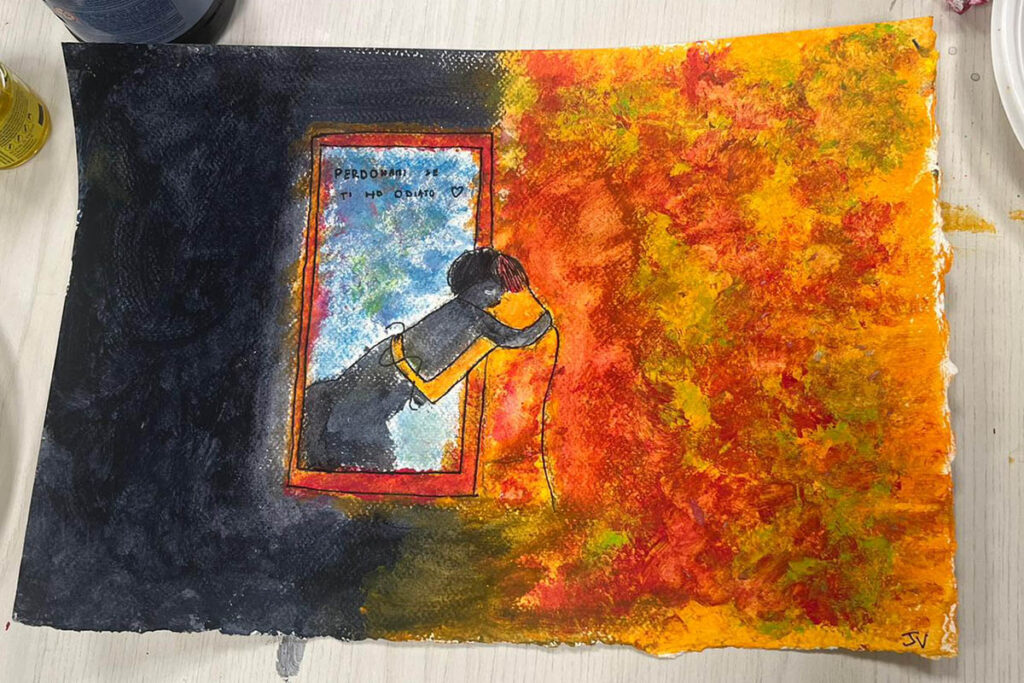
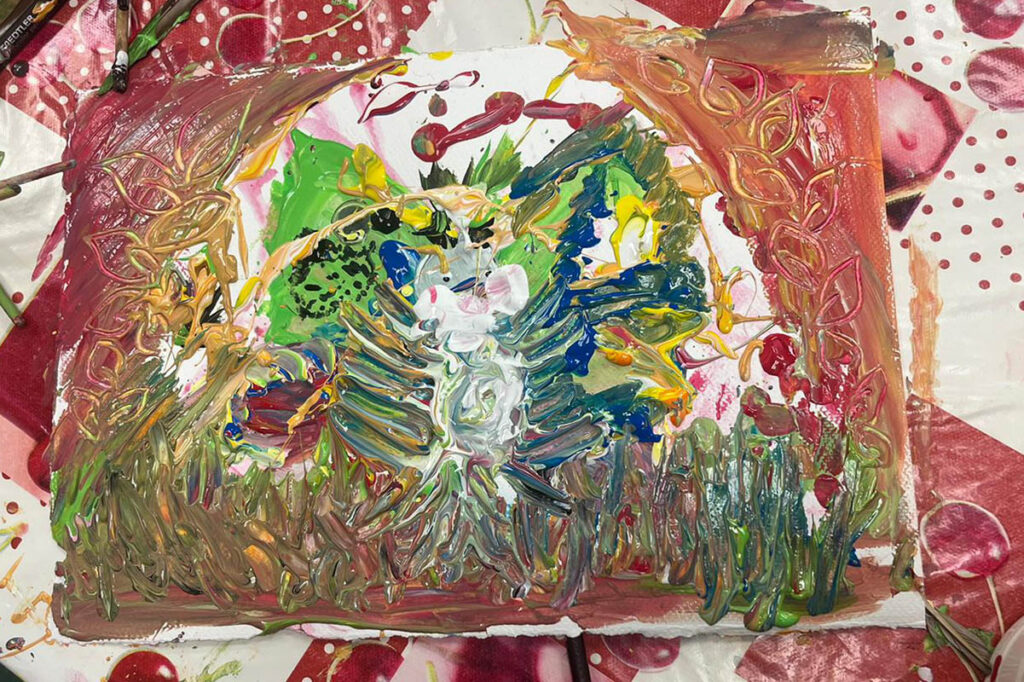
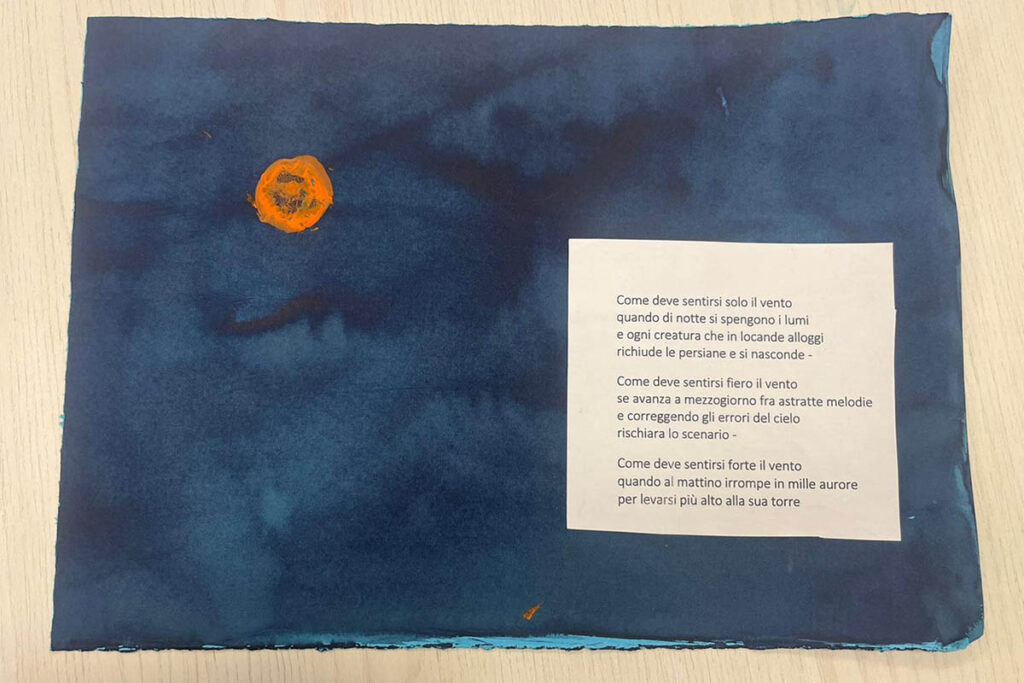
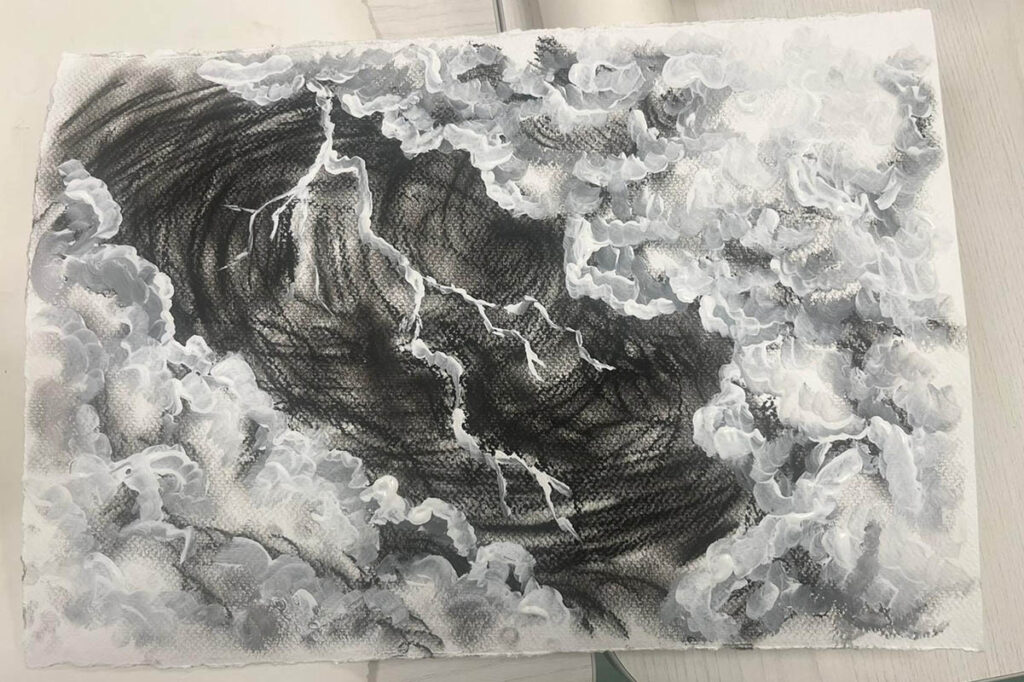
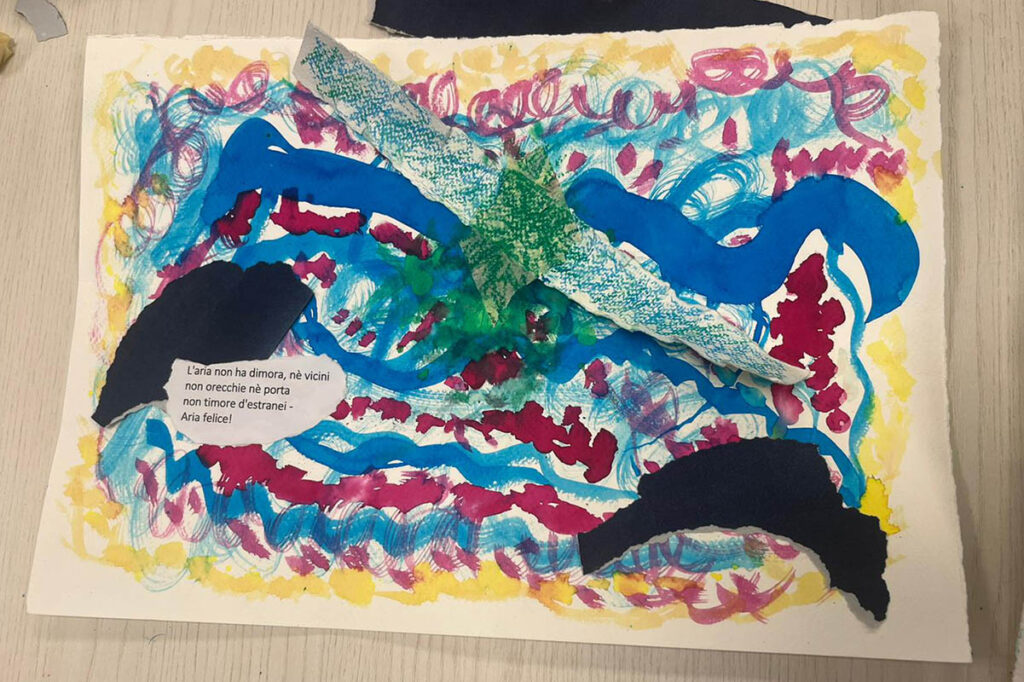
The Art4Me project connects mental health and art and aims to create a unique opportunity to provide a new platform for sharing knowledge across borders and stakeholders, and a path for better citizen empowerment with or at risk of having mental health problems. A long series of new tools is therefore needed to address mental health. While art and creative expression have been a central element of European culture for millennia, the use of art as a tool for mental health has been poorly mapped and experiences often not shared.
The project aims to:
In order to prevent isolation and social marginalization, the project proposes the activation of a listening and assistance service in the area, which provides information on mental health services, orients users and supports them in defining a personalized project with territorial services.
To raise awareness among citizens about mental health, the project organizes training courses, information and annual conferences on topics such as Recovery and addictions. The training objectives include the creation of a group of volunteers to facilitate the social inclusion and therapeutic path of people with mental distress through socialization workshops, such as theatre, music, photography and art therapy.
In order to combat the loneliness of family members of people with mental health problems, the project promotes self-help groups with weekly meetings and monthly supervision by professionals, such as psychiatrists and psychologists, to provide supportive support and share experiences.
The project is conceived following a Recovery approach, which aims to give users an active role again, transforming them from passive recipients to protagonists involved in their own choices and committed to fully developing their potential.
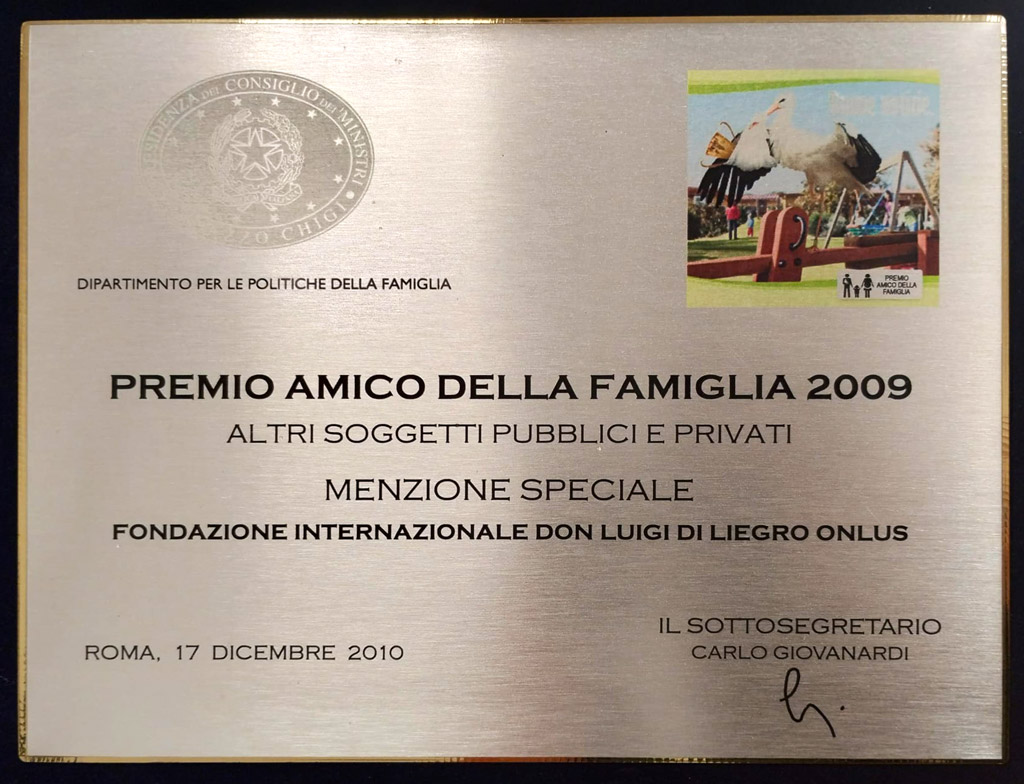
The area of intervention of the project was mainly the ASL Roma 2 area, but it was aimed at citizens of the entire territory of Rome Capital. The project allowed a broad involvement of users, family members, citizens and institutions. The activities implemented largely represent examples of replicable good practices and an example of civic participation, empowerment and social inclusion of isolated or people in difficulty. The activities are free for participants, open to all citizens, supported by a monitoring system and the use of systems to protect individual privacy.
Good practices in the field of mental health certainly emerged from the project activities, such as the effectiveness restored to people with discomfort through the creation of inclusive socialization spaces. In fact, often in mental health services laboratory activities are exclusive to those with a psychiatric diagnosis and people risk being ghettoized and self-excluding themselves. Supporting not only professionalizing activities with art masters but also socialization with volunteers and non-clinical operators allows for better use of the tool e.g. artistic in favor of rehabilitation and the acquisition of safety by the person. Another good practice is to encourage the meeting of family members of users who come from different contexts: through discussion and networking between people who face the same caregiving difficulties it is certainly an element of help for the whole family and the valorisation of resources .
The effects of Covid on children and young people, between social distancing, loss of routine, anxiety and uncertainty linked to the disease, up to the fear of parents and the difficulties generated by distance learning have made it necessary to intervene on the emotional and social sphere of students, especially on those in middle school classes, who started secondary school shortly before the start of the pandemic.
The project is based on the approach ofpeer education, an effective strategy for preventing and promoting mental health. By involving students, teachers and psychologists, the goal is improve the psychophysical and relational well-being of children, enhancing self-esteem, confidence and sense of security. Peer education, which involves the horizontal transmission of knowledge within a group, then promotes exchange between classmates, offering support between peers.
Each class develops a path during 10 group meetings lasting 2 hours each, scheduled 2 weeks apart.
The focus is on development of emotional and social skills such as the knowledge and regulation of emotions, the ability to take on the other's point of view, empathy, self-efficacy, assertive communication, which are the basis of functional and inclusive inter-personal relationships.
The practical approach, with activities such as role-playing, focus-groups and the use of mindfulness techniques, is integrated with cognitive reflection to promote group cohesion and psychosocial well-being.
Thanks to the positive relational climate built, the children deal with issues such as body acceptance, sexual orientation, sharing some complex life experiences, difficult communication with the adult world and perceived judgement, self-esteem and valorisation. of himself.
IncluPsy is a project funded with support from the European Commission which aims to promote the social inclusion of people living with mental disorders. There are 6 partners (coming from five different European countries) called to discuss and exchange their experiences in order to strengthen their capabilities and define good practices on the topic.
With Inclupsy we also want to increase the awareness and the involvement on the topic of a larger number of actors on the topic of social inclusion. In fact, according to the World Health Organization, one in four Europeans suffers from mental illnesses.
The report "Health at a Glance: Europe", created by the European Commission and the Organization for Economic Co-operation and Development, highlights how mental distress is one of the most urgent issues to be addressed and warns of economic and social consequences of the problem.
People with severe and persistent mental disorders generally suffer from a great sense of isolation, the loss of the ability to undertake initiatives and live in independent housing, hold a job and carry out normal daily activities.
These effects, combined with the stigmatization and, in certain cases, prolonged and repeated psychiatric hospitalizations themselves become a factor of social disintegration, leading people to lose their homes, wander the streets and be excluded.
In light of the links (as cause or consequence) between mental disorders and social exclusion, it is not surprising that inclusion is one of Europe's priorities. But What practices are implemented by Europe to promote the social inclusion of people living with mental disorders? This question is the underlying theme of the IncluPsy project.
Go to site by IncluPsy.